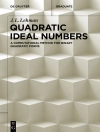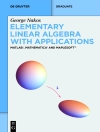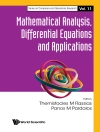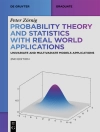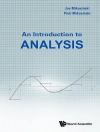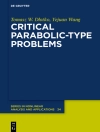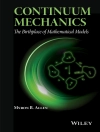Students and researchers from all fields of mathematics are invited to read and treasure this special Proceedings. A conference was held 25 –29 September 2017 at Noah’s On the Beach, Newcastle, Australia, to commemorate the life and work of Jonathan M. Borwein, a mathematician extraordinaire whose untimely passing in August 2016 was a sorry loss to mathematics and to so many members of its community, a loss that continues to be keenly felt. A polymath, Jonathan Borwein ranks among the most wide ranging and influential mathematicians of the last 50 years, making significant contributions to an exceptional diversity of areas and substantially expanding the use of the computer as a tool of the research mathematician. The contributions in this commemorative volume probe Dr. Borwein’s ongoing legacy in areas where he did some of his most outstanding work: Applied Analysis, Optimization and Convex Functions; Mathematics Education; Financial Mathematics; plus Number Theory, Special Functions and Pi, all tinged by the double prisms of Experimental Mathematics and Visualization, methodologies he championed.
Mục lục
Section I: Applied Analysis, Optimisation, and Convexity.- Burachik, R. and Li, G: Introduction .-Borwein, D., Borwein, J. M., and Sims, B: Symmetry and the Monotonicity of Certain Riemann Sums.-Rockafellar, R. T.: Risk and Utility in the Duality Framework of Convex Analysis.- Dinh, N., Goberna, M. A., and Volle, M: Characterizations of robust and stable duality for linearly perturbed uncertain optimization problems .-Millán, R. D., Lindstrom, S. B., and Roshchina, V: Comparing Averaged Relaxed Cutters and Projection Methods: Theory and Examples.-
Section II: Education.- Borwein, N. S.: Introduction.- Borwein, N. S. and Osborn, J-a. H: On the Educational Legacies of Jonathan M. Borwein .- Devlin, K.: How Mathematicians Learned to Stop Worrying and Love the Computer .- Goos, M.: Crossing Boundaries: Fostering Collaboration between Mathematics Educators and Mathematicians in Initial Teacher Education Programs.- Holmes, K.: Mathematics Education in the Computational Age: Challenges and Opportunities.- Phillips, C. and Ly, F. K: Mathematics Education for Indigenous Students in Preparation for Engineering and Information Technologies.- Assis, M. and Donovan, M: Origami as a Teaching Tool for Indigenous Mathematics Education.- Jungić, D. and Jungić, V.: Dynamic Visual Models: Ancient Ideas and New .- Chan, E. Y. S. and Corless, R. M: A Random Walk Through Experimental Mathematics.-
Section III: Financial Mathematics.- Bailey, D. and Zhu, Q. J: Introduction.- Altman, M.: A Holistic Approach to Empirical Analysis: The Insignificance of P, Hypothesis Testing, and Statistical Significance.- Bailey, D. H, Borwein, J. M, Salehipour, A. and Prado, M. L: Do Financial Gurus Produce Reliable Forecasts?.- Borwein, J. M and Zhu, Q. J: Entropy Maximization in Finance.-
Section IV: Number Theory, Special Functions, and Pi.- Brent, R.: Introduction.- Baake, M., Coons, M, and Mañibo, N: Binary Constant-Length Substitutions and Mahler Measures of Borwein Polynomials .- Brent, R.: The Borwein Brothers, Pi and the AGM.- Calude, C. S. and Calude, E: The Road to Quantum Computational Supremacy.- Dilcher, Karl.: Nonlinear Identities for Bernoulli and Euler Polynomials.- Hussain, M. Mahboubi, S. H. and Motahari, A. S: Metrical Theory for Small Linear Forms and Applications to Interference Alignment.- Platt, D. and Trudgian, T: Improved Bounds on Brun’s Constant.- Skerritt, M. P. and Vrbik, P: Extending the PSLQ Algorithm to Algebraic Integer Relations.- Straub, A. and Zudilin, W: Short Walk Adventures.



